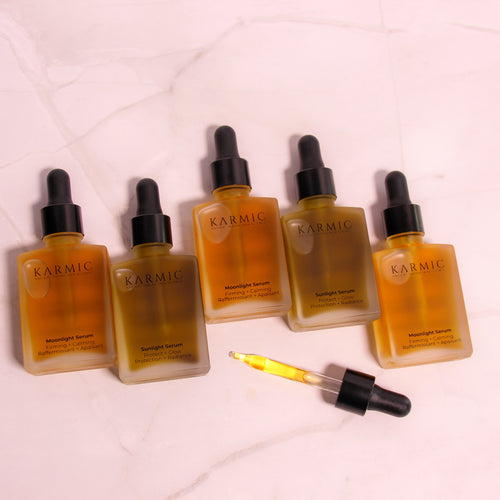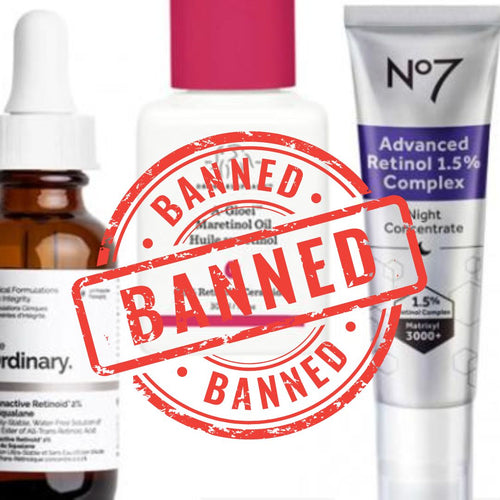Dark spots, also known as hyperpigmentation, can be a frustrating skin issue for many. Whether they result from sun exposure, acne scars, or the natural aging process, these spots can detract from your skin’s natural beauty. But there's a hero in the skincare world that's gaining acclaim for its ability to brighten skin and reduce the appearance of these blemishes: Vitamin C serums. Let's dive into why a Vitamin C serum should be a staple in your skincare routine if you're looking to diminish dark spots and achieve a more radiant complexion.
Understanding Hyperpigmentation
Before we explore the benefits of Vitamin C, it's important to understand what causes hyperpigmentation. This common skin condition occurs when excess melanin, the pigment that gives skin its colour, forms deposits in the skin. Several factors can trigger its production, including UV exposure, hormonal influences, aging, and skin injuries or inflammation.
Why use a Vitamin C Serum?
Vitamin C is a potent antioxidant that helps your skin's natural regeneration process, which repairs damaged skin cells and fades dark spots. Here’s how it works its magic:
- Inhibits Melanin Production: Vitamin C interferes with the action of an enzyme called tyrosinase, which is necessary for the production of melanin. By inhibiting this process, Vitamin C helps prevent new dark spots from forming.
- Promotes Cell Turnover: It accelerates the production of both collagen and elastin, which help keep your skin firm and youthful. This increased cell turnover helps to shed pigmented cells more quickly, speeding up the fading of dark spots.
- Combats Free Radical Damage: Vitamin C neutralises free radicals, unstable molecules that can cause oxidative stress and further pigmentation issues when left unchecked.
- Enhances Sun Protection: While not a substitute for sunscreen, Vitamin C fortifies the skin's defence against UV radiation. This is crucial because UV exposure can exacerbate hyperpigmentation.
- Improves Skin Radiance: Regular use of Vitamin C serum not only reduces dark spots but also gives your skin a vibrant, healthy glow.

Choosing the Right Vitamin C
Not all Vitamin C derivatives are created equal, so choosing the right one is crucial for effective results. Cheaper Vitamin C derivatives like L-Ascorbic Acid are notoriously unstable and degrade quickly when exposed to light or air. Look for serums that use stable forms for Vitamin C such as Ascorbyl Tetraisopalmitate, to ensure you're getting the best bang for your buck.
You can see even faster results by using a Vitamin C serum containing complementary ingredients such as Saffron, an ingredient used for centuries in Indian and African natural remedies, to speed up the process of fading age spots and skin brightening.
How to Use Vitamin C Serum Effectively
To get the most out of your Vitamin C serum, integrate it into your skincare routine properly:
- Apply on Clean Skin: Ideally, apply Vitamin C serum after you cleanse but before you moisturise. Clean skin ensures better absorption.
- Use Sunscreen: Always follow up with sunscreen in the morning.
- Be Patient: Results take time. Consistent use is key, and it can take up to 4 weeks to notice a reduction in dark spots, if you are using an effective formula.
Summary
Incorporating a Vitamin C serum into your daily skincare routine can be a game-changer, especially if you're struggling with dark spots. With its potent antioxidant properties and ability to promote collagen production, Vitamin C not only diminishes hyperpigmentation but also imparts a youthful radiance to your skin. Remember, consistency is key, and a little patience goes a long way in achieving that flawless, even complexion.




